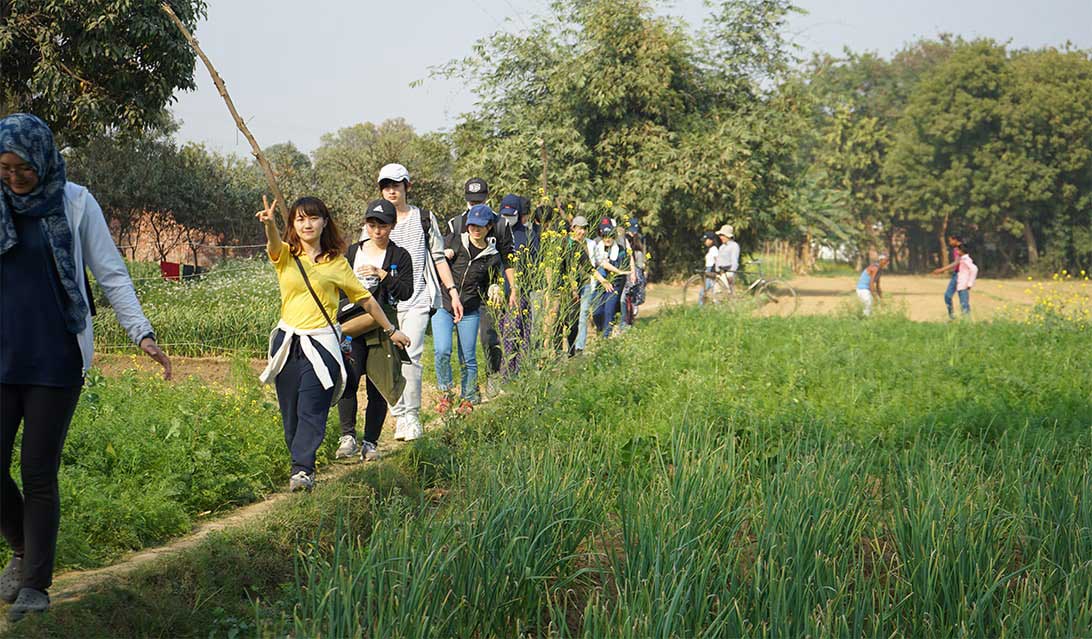The G20 Meeting of Agricultural Chief Scientists (MACS) is a highly significant event that will take place in Varanasi from April 17-19, 2023. The meeting’s theme of Sustainable Agriculture and Food Systems for Healthy People and Planet aligns with India’s G20 presidency theme of “One Earth, One Family, One Future.” The MACS meeting is an annual event that brings together top agricultural scientists from the G20 countries to discuss the latest developments in sustainable agriculture and food systems.

The MACS meeting in Varanasi is particularly significant because India is a key player in the global agricultural sector. As one of the world’s largest producers of food, India faces numerous challenges related to sustainable agriculture and food systems. The MACS meeting provides an opportunity for Indian agricultural scientists to share their experiences and expertise with their counterparts from other G20 countries and to learn from their best practices.
The theme of Sustainable Agriculture and Food Systems for Healthy People and Planet is also highly relevant to the current global context. The COVID-19 pandemic has highlighted the importance of sustainable and resilient food systems, and the MACS meeting provides an opportunity to discuss strategies for ensuring food security and nutrition in the face of future crises.
The MACS meeting is expected to focus on several key areas, including improving agricultural productivity, promoting sustainable land use, reducing food waste, and enhancing the resilience of food systems. The discussions are also expected to address the challenges faced by small-scale farmers, who are among the most vulnerable to the impacts of climate change and other global challenges.
The selection of Varanasi as the host city for the G20 Summit is significant in several ways. First, it highlights India’s growing economic importance and influence on the world stage. India is currently the world’s sixth-largest economy and is expected to become the third-largest by 2030. As such, the country’s role in global economic decision-making is only going to become more important in the coming years.
Second, hosting the G20 Summit in Varanasi provides an opportunity to showcase India’s rich cultural heritage and diversity to the world. The city is home to several ancient temples and monuments that are of great historical and cultural significance. By showcasing these sites to the world, India can help promote tourism and enhance its soft power.
Third, the summit provides an opportunity for India to showcase its commitment to sustainable development and climate change mitigation. The country has set ambitious targets for reducing its carbon emissions and has made significant progress in increasing its renewable energy capacity. By hosting the G20 Summit in Varanasi, India can showcase these efforts and encourage other countries to follow suit.
Finally, hosting the G20 Summit in Varanasi is a significant moment for the city itself. The event will bring global attention to the city and its people, and it is expected to generate significant economic benefits for the local community. The summit will also provide an opportunity for the city to showcase its unique cultural identity and promote itself as a tourist destination.In conclusion, the G20 Meeting of Agricultural Chief Scientists in Varanasi is a momentous occasion that will have a lasting impact on India and the world. The meeting’s focus on sustainable agriculture and food systems aligns with India’s commitment to promoting sustainable development and addressing the challenges facing the agricultural sector. The selection of Varanasi as the host city for the G20 Summit is a significant opportunity for India to showcase its growing economic importance, cultural heritage, and commitment to sustainable development. It is an event that is highly anticipated, and its outcome will likely have a profound impact on the future of agriculture and food systems globally.






